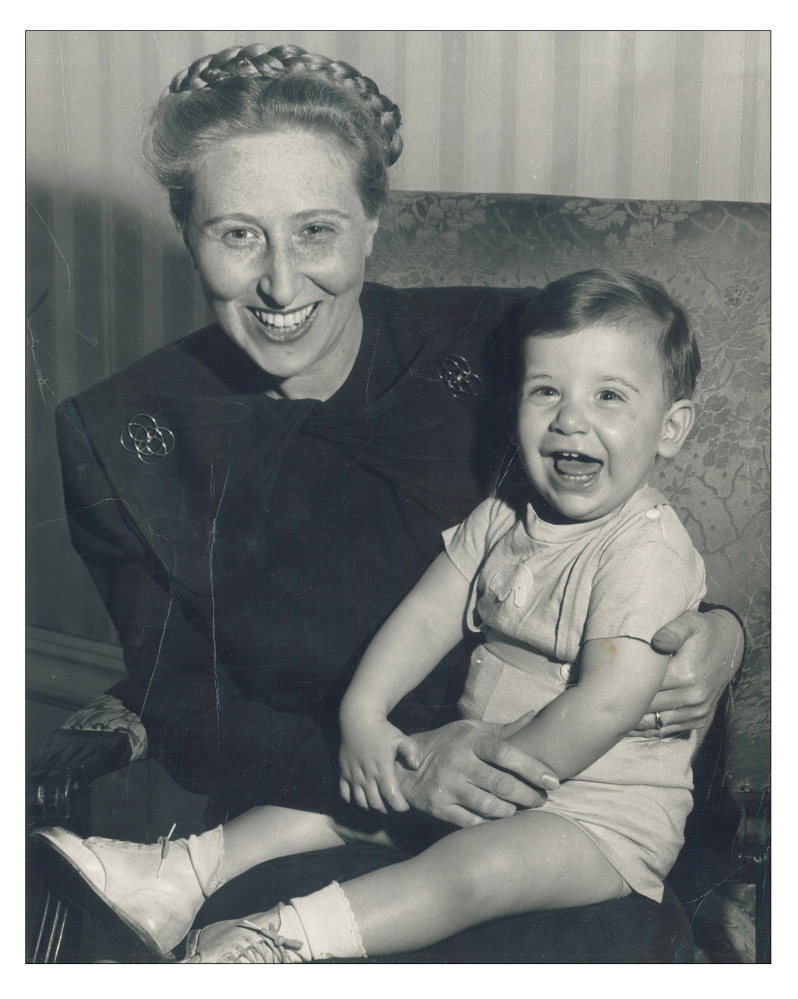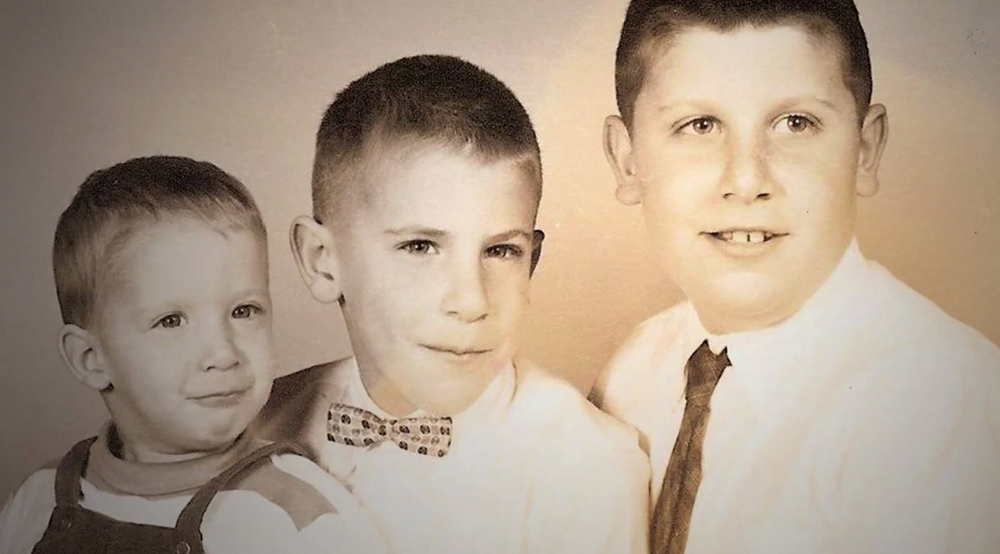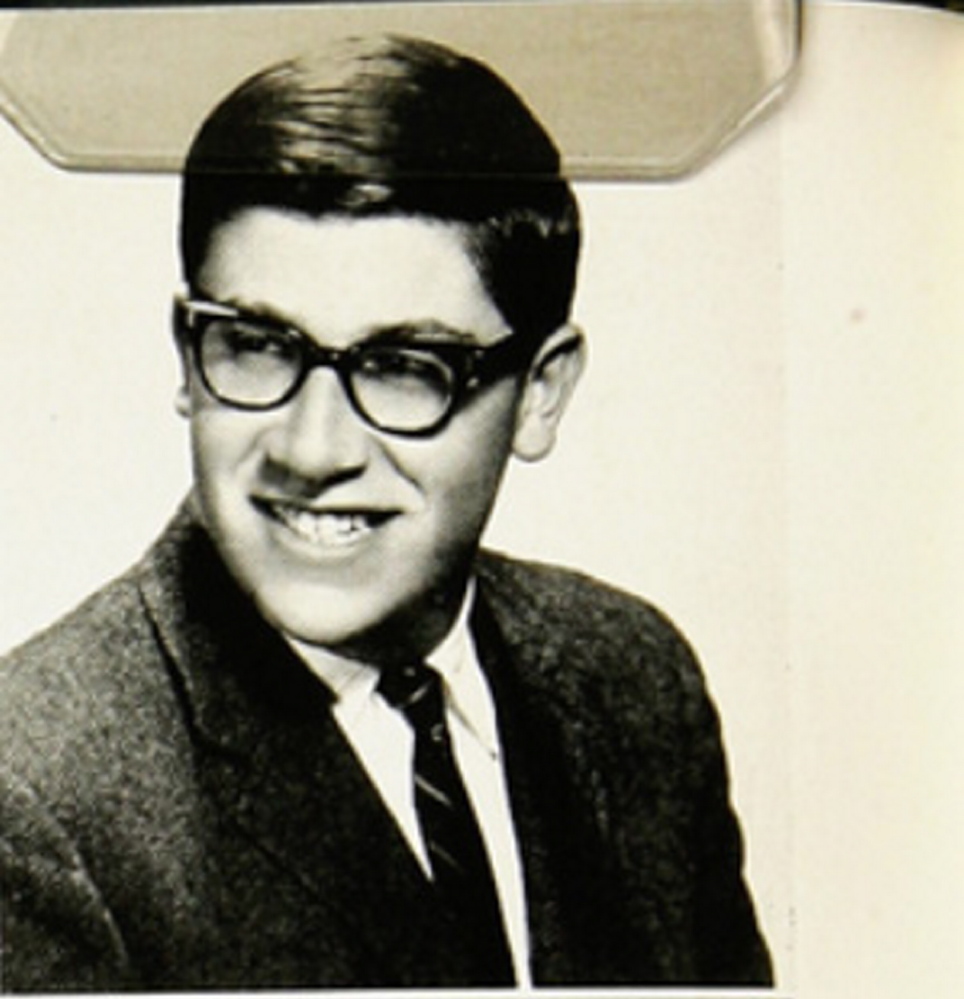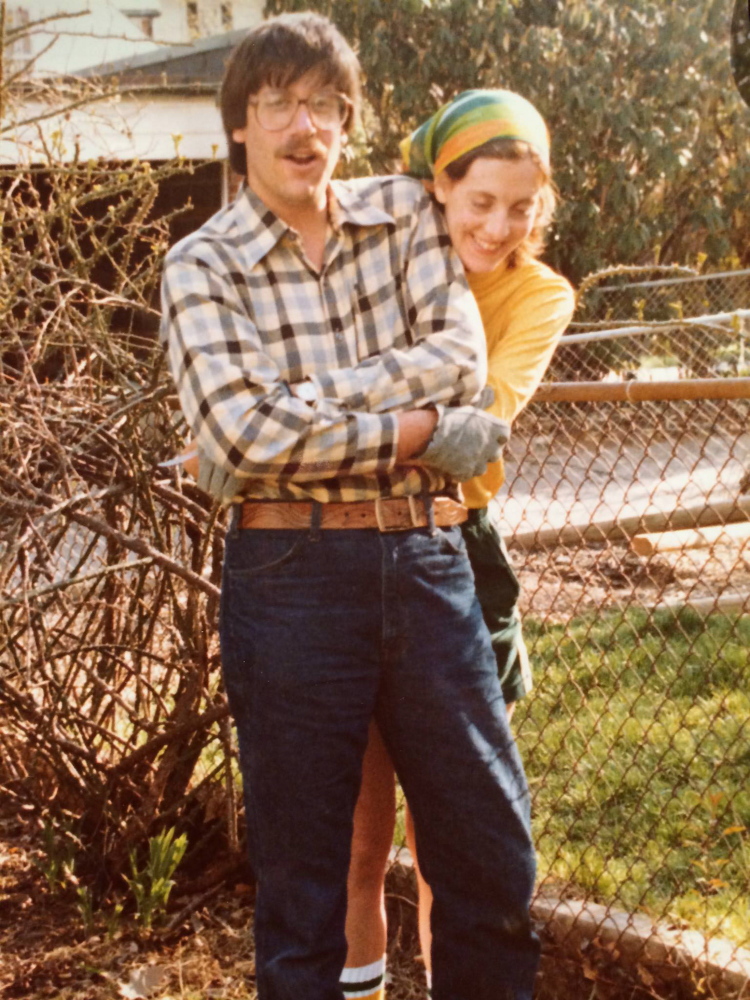By his own admission, Eliot Cutler was an underachiever when he entered Bangor High School in the early 1960s.
His father, a prominent doctor, and his mother, a community-minded and socially conscious housewife, decided their oldest son needed to be challenged, and they didn’t think that would happen in Bangor. At the time, the high school was so overcrowded that it had to split school days into two shifts.
After his freshman year, young Eliot was given two choices: Hebron Academy in western Maine or Deerfield Academy in midwestern Massachusetts, both private boarding schools.
Cutler chose Deerfield, and so began an educational pedigree that rivals senators, presidents and Fortune 500 CEOs.
It was at Deerfield that Cutler said he got “kicked in the pants” and forged a path that led him to Harvard College, law school at Georgetown University and a successful career, first in government, then as a lawyer.
In 2014, at age 67, the independent candidate to be Maine’s next governor is in many ways similar to the young man who arrived at Deerfield in his dad’s old raccoon fur coat, which was so big it earned him the nickname “Beast.”
He’s intelligent, confident and driven to succeed but also has a strong desire to give back to his home state, a quality his parents instilled in him at an early age.
“He was always interested in public policy and in debating,” said Peter Gabel, a classmate who now lives in San Francisco and is editor at large of Tikkun, a progressive Jewish magazine. “But he was also a decent, caring, heartfelt person. He was someone I felt comfortable talking to and confiding in.”
Alan Cohen, a pediatric hematologist at The Children’s Hospital of Philadelphia, was another classmate of Cutler’s at Deerfield.
The two reconnected last month during the 50th anniversary of their graduating class.
“He’s still the same. Gregarious and able to talk about anything,” Cohen said. “I’m not surprised at all that he’s been so successful or that he’s running for governor.”
‘I AM MY MOTHER’S SON’
Eliot Raphael Cutler was born July 29, 1946, the oldest of three boys, to Lawrence and Catherine Cutler.
In his book, “A State of Opportunity,” Cutler said he won the “genetic lottery.”
His father, a World War II veteran, was a physician and chief of medical services at what is now Eastern Maine Medical Center in Bangor from 1948 to 1968. He also was a longtime member of the University of Maine’s board of trustees. The student health center on the Orono campus is named for him.
Cutler’s mother was a Wellesley College-educated economist and worked in Washington, D.C., while her husband was at war. When they moved back to Maine and started a family, she was a homemaker mostly, but Cutler said, “I probably saw more of my father, whose office was attached to our house, than I did of my mother when I was growing up.”
Catherine Cutler, who went by Kay, was a community leader for a variety of social causes, particularly mental health and women’s rights. She founded an organization in Bangor that became Community Health and Counseling Services, the area’s leading nonprofit agency for mental health services and home health care. She was a founder of Spruce Run, a shelter and agency that assists women and children affected by domestic violence, and also helped establish the Mabel Wadsworth Women’s Health Center, which provides family planning and abortion services.
The Cutler Institute for Health and Social Policy at the University of Southern Maine’s Muskie School is named for Kay.
Eliot says he drew from both of his parents, but his political spirit came from his mother.
“I am my mother’s son,” he said at a recent campaign event. “She didn’t believe in political parties or labels. And the groups and organizations that she founded and supported didn’t view the world through the lens of partisan politics.”
Nelson Durgin, a longtime Bangor resident and recent city councilor, knew the Cutler family well.
“His parents were people who really cared about the community and they raised children to understand those responsibilities,” Durgin said.
In an interview with Bates College in 2002, one year before she died, Catherine Cutler said her son often talked as a boy about how he was going to be governor someday.
Roberta Rogge, who lives in New York City, grew up with Cutler in Bangor and agreed that he had aspirations early on.
“He was always interested in politics,” she said. “He was reading The New York Times before any of us knew there was a world outside of Bangor.”
The Cutlers were a prominent, mid- to upper-class Jewish family who lived on Bangor’s East Side not far from the hospital where Lawrence Cutler spent much of his time. The father was quiet but had a commanding presence, Rogge said.
When he was old enough, Eliot went to work at the hospital, too, washing dishes in the kitchen.
During a recent campaign swing through his hometown, Cutler visited the hospital that played a big role in his upbringing.
The hospital is much larger today and is preparing to add another building on its campus overlooking the Penobscot River. Among the new additions to EMMC is a hallway that connects two wings of the hospital. The walls are adorned with old pictures that detail that hospital’s 122-year history.
Cutler stopped at the 1950s.
“That’s my dad,” he said, pointing to a picture of several men.
Cutler took out his cellphone and took a quick picture.
“I’ve got to show my brothers,” he said.
‘I GOT KICKED IN THE PANTS’
Deerfield Academy was the quintessential New England boarding school when Eliot Cutler arrived in the 1960s.
It was boys only, strict and formal. Coats and ties were to be worn in the classroom and at dinnertime.
It was hard to stand out among 500 or so teenage boys, but Cutler did, according to classmates, thanks to his large physical presence, dark-rimmed glasses and a distinctive old coat that belonged to his dad.
“My father had from his time at UMaine in the 1920s, a raccoon fur coat and I discovered it in a closet back home,” Cutler said. “Lo and behold, 40 years later, it was in pristine condition, sealed in a bag. I asked if I could take it with me.
“It was absolutely enormous. It hung down to my calves and had this huge collar. And I guess when I wore it that’s what I looked like,” Cutler said, explaining how he got the nickname “Beast.”
Deerfield’s headmaster at the time was a man named Frank Boyden, a legendary figure who had built Deerfield into a sought-after repository for bright young male minds.
Boyden was in his 80s by then and winding down a 66-year career as headmaster. He was known for taking a personal interest in students, and Cutler was one of them.
“Boyden, for reasons that weren’t then and aren’t now clear to me, decided I was a leader and took a special interest in me,” Cutler said.
Boyden’s goal was to turn out not just intelligent, but also well-rounded men. Each student was required to participate in a co-curricular activity.
Cutler participated in several, including the yearbook, which was called Pocumtuck, the debate club and the track team.
Asked whether he ran, Cutler laughed.
“Did I run?” he asked incredulously. “If I had to. If they made me.
“I threw the discus.”
Interestingly enough, Deerfield was widely considered a Republican breeding ground at the time. Boyden was a one-time delegate to the Republican National Convention.
Cutler, of course, went on to work for a Democratic senator and a Democratic president and on five different Democratic presidential campaigns before becoming an independent later in life.
He said Deerfield was a place where debate was always lively, and that’s where he excelled.
Yet when it came time to choose a college, and classmates had their chosen path, Cutler was unsure.
He ended up at Harvard without ever setting foot on campus.
“The only reason I got in was Frank Boyden,” he said.
Cutler remembers his time at Deerfield as transformative.
“I got kicked in the pants in a manner that was unconventional and probably inappropriate,” he said, deliberately leaving out the details. “But it worked. It lit a fire, and I’m grateful for that.”
Years later, after Deerfield became co-educational, he would return to drop off his daughter, Abigail.
‘MESSY FRESHMAN YEAR’
Cutler entered Harvard in 1964, before the counterculture revolution, Vietnam War protests and the hippie movement.
His brothers, Joel and Josh, both went to medical school and became doctors like their father, but Eliot was always interested in politics.
The political science department at Harvard was dominated at that time by professors who talked about theories but had never actually spent any time on campaigns or in government – something that bothered Cutler then and still bothers him today.
His favorite professor at Harvard was a teaching assistant in a social sciences class named Barney Frank, who went on to become a U.S. House member from Massachusetts from 1981 to 2013.
“He was smart and really funny,” Cutler said. “In those days he looked and talked like Buddy Hackett (a portly actor and comedian). But he was provocative and opinionated and I liked that.”
Cutler admitted in a 2002 interview with Bates College that “having a good time” was how he spent his first year at Harvard.
“I think this is true of a lot of kids, a lot of boys in particular who come out of boarding school, you know, the first year I spent trying to make up for what I considered to have been three lost years, socially,” he said. “You know, I dated everyone I could find. Most of my time was spent pursuing a social life.”
During the same interview, Cutler admitted to drinking heavily.
“It was a messy, messy freshman year,” he said.
Cutler also joined the Harvard Lampoon, a humor magazine produced by students, some of whom later went on to found National Lampoon.
The Harvard Lampoon boasts notable alumni, such as late night talk show host Conan O’Brien and B.J. Novak, a writer and actor for the TV series “The Office.”
In the 1960s, the Lampoon had a dual reputation for its bacchanalian ways and the biting satire found in its publications.
“He was a good solid student, but probably like me, he was interested in having fun and the Lampoon was a lot of fun,” said Dick Spencer, who was two years ahead of Cutler at Harvard and is now an attorney with Drummond Woodsum in Portland.
The Lampoon also gave Cutler a glimpse into the business world, where he would later excel.
The Lampoon did a parody of Playboy magazine and sold ads nationally. More than 500,000 copies were printed and they sold out in less than two weeks. The publication made $700,000, according to Spencer, which was a staggering amount of money for 1966.
“That essentially created an endowment for the Lampoon for years to come,” Spencer said.
Cutler could have followed some of his classmates to the National Lampoon, which would go on to produce a number of Hollywood movies, including “Animal House” and the “Vacation” series, but he didn’t.
He had another offer, one that better suited his long-term interests.
Democratic U.S. Sen. Edmund Muskie, a native of Rumford who had been Maine’s governor from 1955 to 1959, had an internship available in his District of Columbia office. Muskie knew Cutler’s family. The job was young Eliot’s if he wanted it.
He did.
LAW SCHOOL AND LOVE
Cutler planned to go to law school after Harvard, but his internship with Muskie led to a full-time job as a research assistant after he graduated in 1968, the same year Muskie would become the Democratic vice presidential nominee.
Law school would have to wait a year.
When he did enroll at Georgetown Law School, which was within walking distance from his day job, it took a back seat.
Still, Georgetown was significant to Eliot Cutler for two reasons: The law degree he eventually received would lead to an enormously successful legal career, and it’s where he met his wife.
Even when he enrolled in law school, Cutler admitted that he didn’t go to class often. It’s not that he didn’t take his classes seriously, he was just much more interested in learning at the school of Ed Muskie.
However, when he returned for his final year after taking a year off to work on the 1972 presidential campaign – he was Muskie’s scheduler – Cutler did attend one class regularly, a course on international law.
Decades later, Cutler would spend three years in China opening international offices of the D.C. law firm Akin Gump, where he was a partner.
One of his classmates in that international law course was a second-year student named Melanie Stewart.
Said Cutler: “I met her after class one day. We were both asking the professor questions but I was only asking because I saw she was asking and I wanted to meet her.
“She was stunning. Still is.”
When they finished with the professor, Cutler asked her to lunch.
“She said, ‘I can’t, I’m going to the library.’ So I said, ‘Can I go to the library with you?’ ” Cutler recalled. “And then I followed her, but I really had to follow her because I didn’t know where the library was.”
The two married the next year and celebrated their 40th anniversary in 2013.
It took Cutler a long time to return to his home state full time, but he believes he has the right background and the right ideas to lead Maine.
If he does get elected, though, the raccoon fur coat won’t be coming with him to Augusta.
“I don’t know what happened to it,” he said. “It didn’t make it.”
Send questions/comments to the editors.







Comments are no longer available on this story